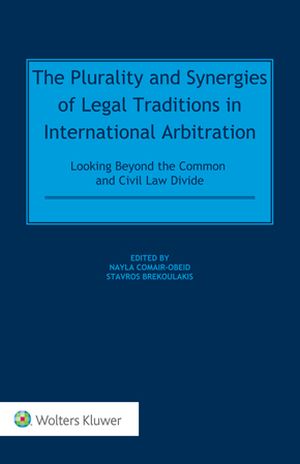
The Plurality and Synergies of Legal Traditions in International Arbitration is a unique book furnishing an informative and rational discussion on various facets of international arbitration, clarifying the main procedural and substantive similarities and differences between different legal systems around the world, highlighting not only common and civil law traditions but also the role played by regional legal traditions including Islamic law and African perspectives. The cultural diversity characterizing international arbitration today is as much a source of enrichment as it is sometimes a source of practical difficulties affecting both the arbitration procedure and the application of substantive law. Consequently, it is becoming more apparent that the critical project for international arbitration in the immediate future will be how to answer the fundamental question of cultural pluralism best.
What’s in this book:
This book comprises contributions from fifty arbitrators, counsel, and academics representing every region of the world where international arbitration has secured a foothold; the volume consolidates and synthesizes a series of discussions sponsored by the Chartered Institute of Arbitrators that took place in Dubai, Johannesburg, and Paris in 2017. The chapters identify and address the following cultural distinctions that affect the vital ever-present factors that have forged the character of modern international arbitration:
The book is brimming with tools and recommendations to ensure synergy and harmony between the different legal traditions that coexist in today’s arbitral proceedings.
How this will help you:
All users of arbitration, whether the arbitrators themselves, lawyers involved as counsel for parties, or judges applying arbitration law, will welcome this peerless elucidation of the different systems and alternative ways of presenting the divergent procedures and methods of conducting international arbitrations. It goes without saying that this book will prove to be of immense value to arbitration academics.